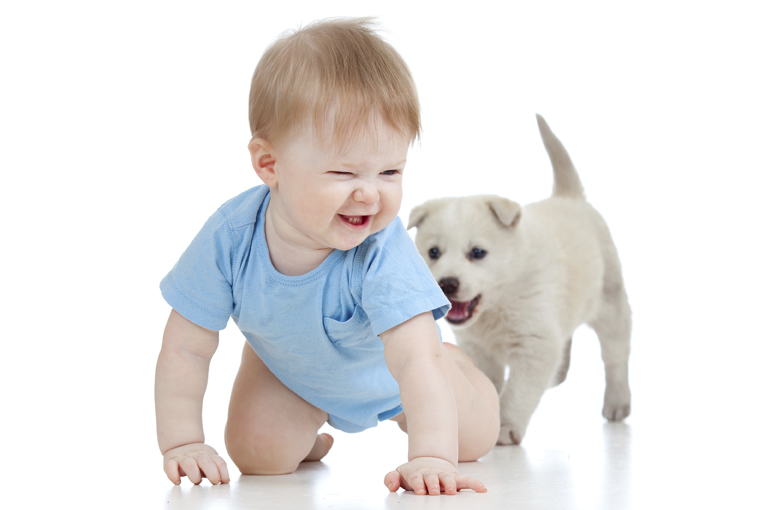Looking for another reason to get a pet? It’s become common knowledge that sharing your life with a companion animal increases happiness. On a medical level, pets have the power to lower their human’s blood pressure, decrease stress levels, and boost self-esteem. Furthermore, over twenty years of research has demonstrated that owning a cat or dog can reduce the risk of asthma.
Building on this particular theory, a recent study published in Microbiome involving nearly 800 infants suggests that pets can help protect babies from allergies and obesity later in life.
The study, conducted by researchers at the University of Alberta, showed that when infants are exposed to the dirt and bacteria on their companion animals, it builds their immunity. Interestingly, this exposure begins when the baby is still in utero.
Pediatric epidemiologist Anita Kozyrskyj, the leader of the study, reported that two types of gut microbes found on pets – particularly dogs – train the child’s immune system to react to bad bacteria and tolerate beneficial ones. Higher levels of “good bacteria” (in this case, Ruminococcus and Oscillospira) can also protect against obesity by promoting leanness, and lower the chance of a mother transmitting a strep infection to her baby during birth.
“The abundance of these bacteria were increased twofold when there was a pet in the house,” said Kozyrskyj in a news release last week. “This interaction is required for a baby’s immune system to develop.”
What could this mean for the future of medicine? Experts are suggesting that these findings could result in the development of a supplement similar to a probiotic that mimics the bacteria on animal companions in order to build immunity in more children. In the meantime, improve your family’s health by spending quality time with your pet.







